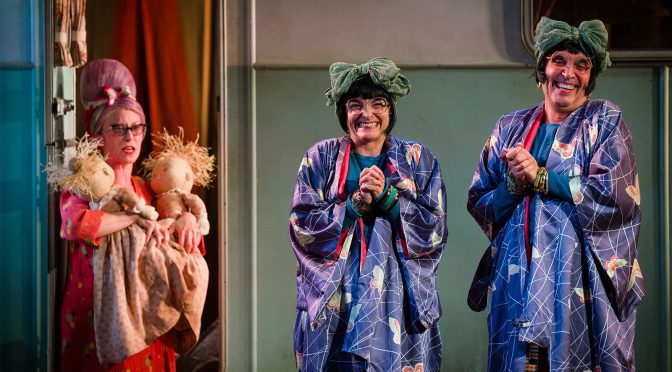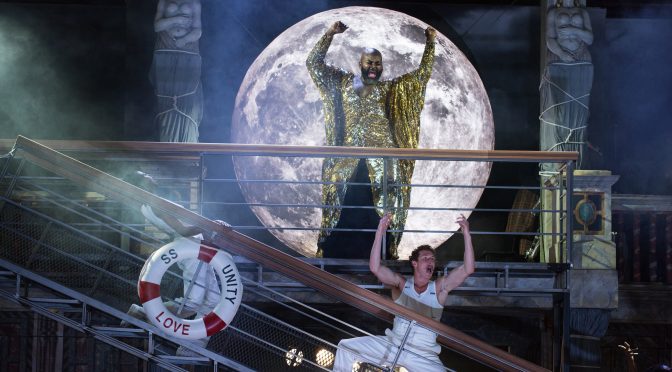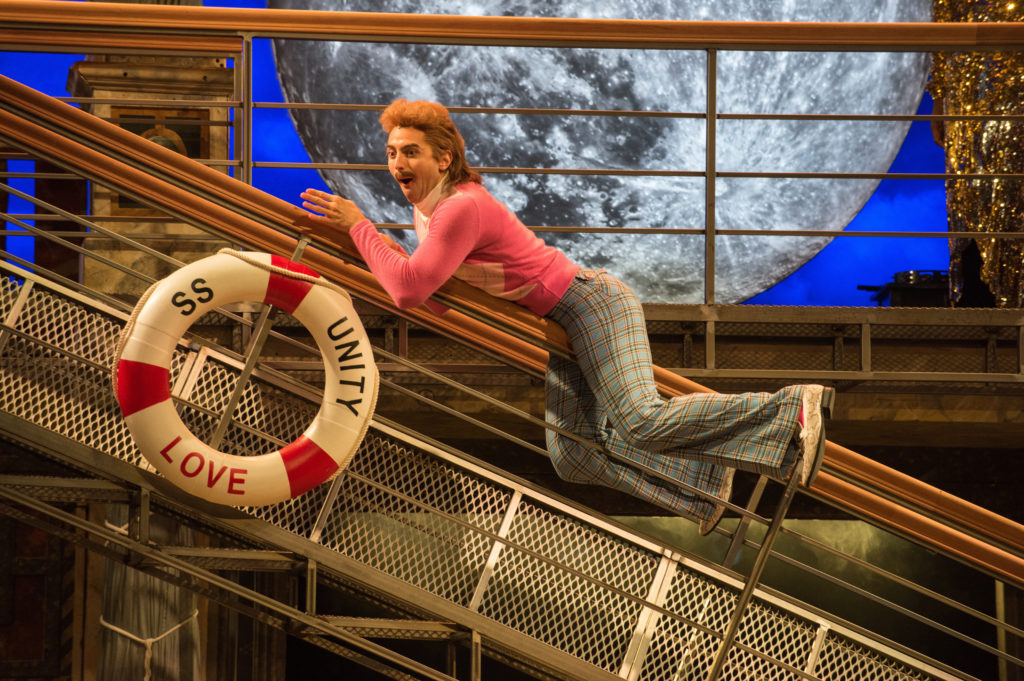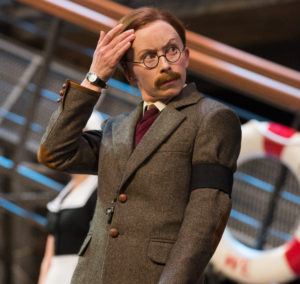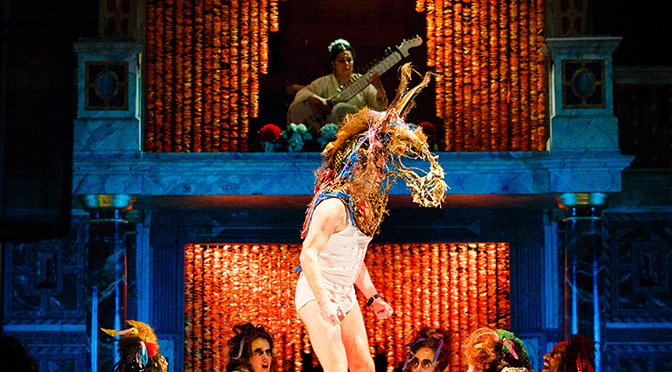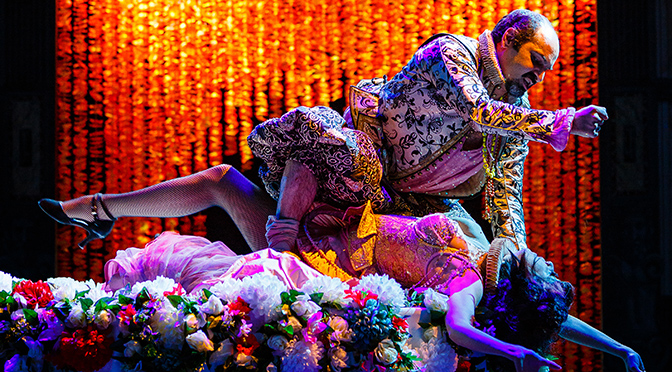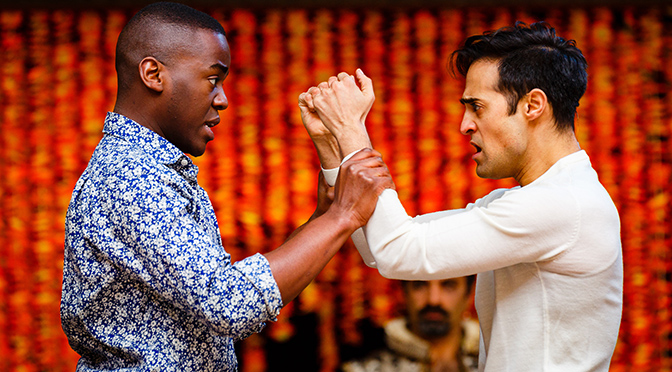Emma Rice and the late Angela Carter make a fine match – their works are full of invention, wit and fantasy. This new adaptation of Carter’s 1991 novel is a great yarn that distils, through its fairy-tale exaggerations, themes of family that are universal while being original and surprising. The story of twins Nora and Dora Chance is full of pain, but also joy – combined with blissful theatricality.
As both director and adapter, Rice has a defined style, well-honed, with plenty of trademarks and I, for one, can’t get enough of them. Instilling a complicity with the audience from the start, the show is a mix of music, dance, even mime. The aesthetic is ramshackle and peripatetic, with a caravan that’s moved around. Costumes become the key to character (with great work from Vicki Mortimer). Rice’s talented cast takes on a head-spinning number of parts with such skill that it’s difficult to work out how many people are performing.
The multiple roles are especially important for Wise Children as six people play our heroines throughout their lives. The performers interact and look over one another’s actions to magical effect. All are wonderful but, taking the lead as the oldest incarnations, are Etta Murfitt and Gareth Snook, whose interaction with the crowd is truly expert. The twins’ past takes in abuse, abandonment, death and war. But throughout there is a sense of humour and mischief. Leading the laughs, complete with a fat suit and big attitude to match, are Katy Owen as Grandma Chance, who takes in the girls when they are babies. And Paul Hunter’s turn as end-of-the-pier comedian Gorgeous George is a real gem.
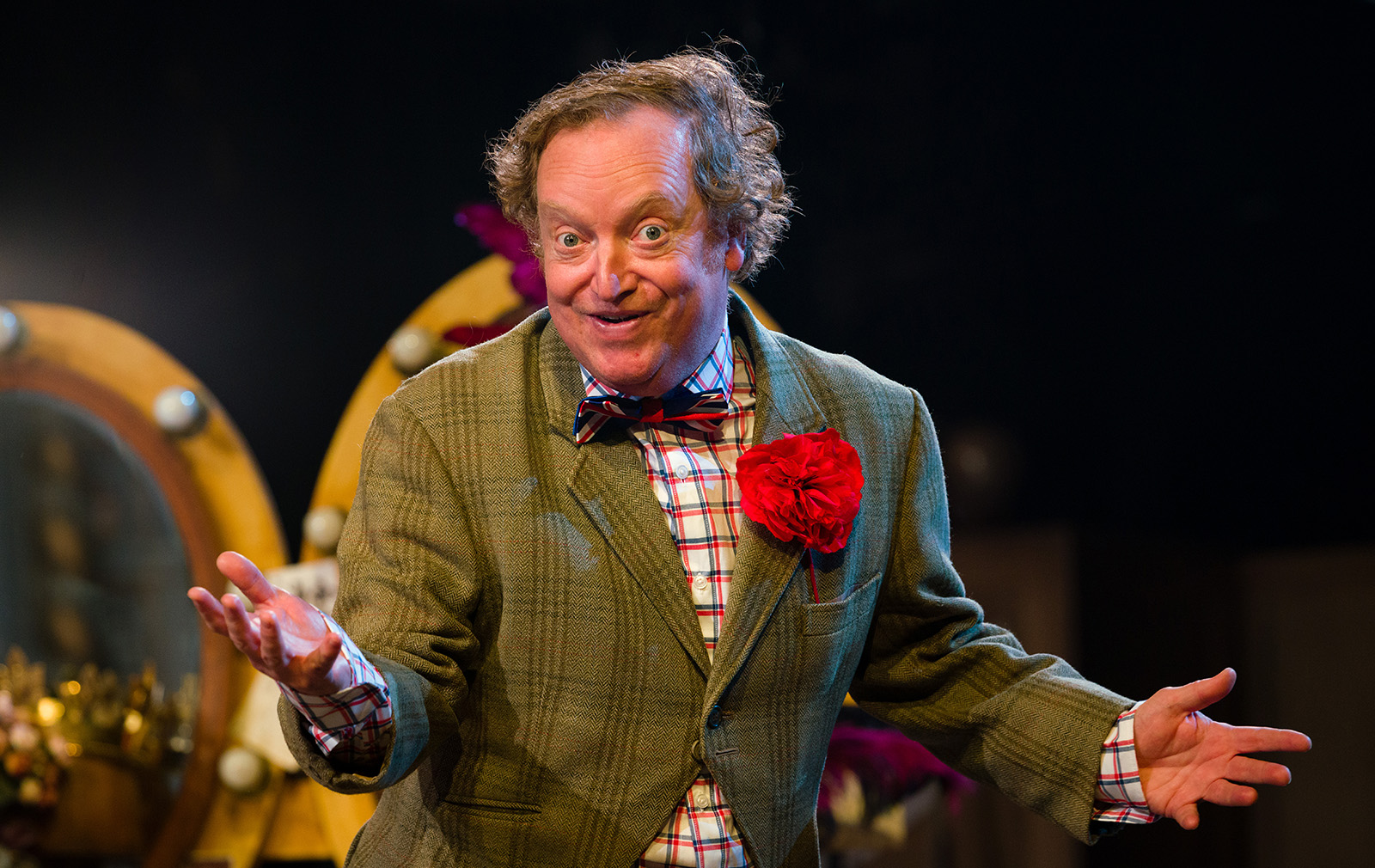
The twins have a life in theatre and their stage career provides a lot of value, including a Shakespeare revue (with surely an eye down the road to Rice’s ex-residence, the Globe) that’s a real hoot. Their birth father (another great role for Hunter) is an old-fashioned mummer, while his acknowledged children, who manage to get to RADA, provide further roles for Mirabelle Gremaud and Bettrys Jones to excel in.
Alongside all the fun and fantasy, Carter retains an edge that injects realism into her story. Rice respects this balance and her multi-disciplinary approach is perfect for bringing out the text’s complexity, including its dark moments. Attacking events with fantastic energy, there’s all the lust you can handle in this genre-defying, gender-bending production, which culminates in a paean to the idea of the logical family. “Oh, what joy to sing and dance” is the twins’ refrain. And what a joy to watch, too.
Until 10 November 2018
Photos by Steve Tanner

